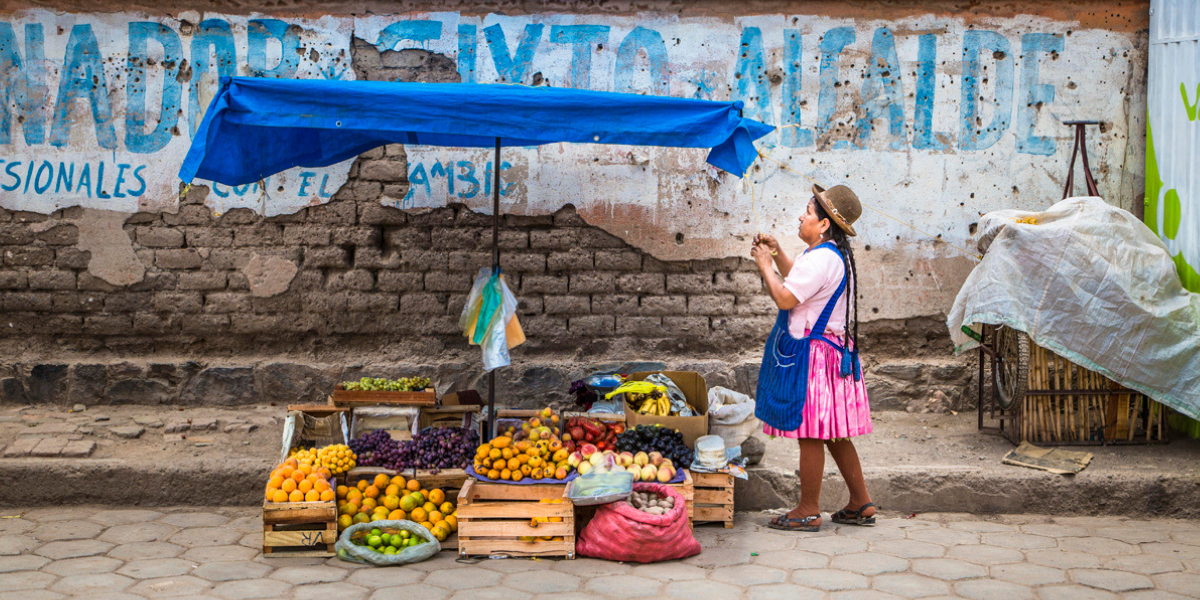Photo: Flickr.com/Francoise Gaujour
The unsustainability of the debt of countries in the Global South is a decades-old problem in which countries like Bolivia, are immersed. The international crisis of the 1980s had affected the poorest and lowest-income countries. Major creditors, such as the International Monetary Fund and the World Bank, agreed to debt relief options called Heavily Indebted Poor Countries (HIPC I and HIPC II) and the Multilateral Debt Relief Initiative (MDRI). Bolivia benefited from these initiatives, under the condition that the freed resources were used to strengthen health, education and productive development, covered by the execution of local governments and with the active participation of civil society.
More than 20 years have passed since these initiatives were implemented. While the efforts to fulfil the conditions were made at the beginning, over time, political and social interests took center stage in the design of public policies.
In March 2020, the COVID-19 pandemic arrived unexpectedly in Bolivia, coming across a weakened health system with untrained medical staff and a shortage of medicine on the market. The government implemented radical measures to curb contagion, restricting the movement of people, suspending work and educational activities and reducing economic activity; precisely three sectors that had been prioritised in the orientation of public policies after the debt cancellation were evaluated in light of the pandemic in Bolivia: health, education and productive development. Could the COVID-19 pandemic reveal if the commitments made in the HIPC I and II and the MDRI were fulfilled?
During the pandemic, work, school and social activities were completely suspended and the family nucleus became the most important social “place” remaining. During this hard time, one character took the lead in caring for the life and health of the household: the woman, who not only took charge of the temporary education of the children, they also took care of the household, the economy, and even of the sick when the hospitals collapsed. Coincidentally, the same three sectors – health, education and productive development – fell on the shoulders of women.
Despite the times, conditions and opportunities are not equal for men and women. The levels of inequality in society, labour, income and access to education still persist. There are countries where women are still subjected to forced labour and have no voice. The pandemic has also revealed an even darker side, which is domestic violence and feminicide. In Bolivia, 113 cases of feminicide and 51 cases of infanticide have been reported during the pandemic. The numbers of victims of violence and their typologies are neither recorded nor published.
At the level of the Latin American and Caribbean region, according to the Economic Commission for Latin America and the Caribbean (ECLAC) data, the Gross Domestic Product is expected to fall 9.1%, which places many of our countries in a situation of extreme vulnerability. In Bolivia, only 1.6% of national GDP is allocated to the health sector and 46% of the employed population are women, working in the commerce, services and agriculture sectors. To reactivate the post-pandemic economy, women and their role must be considered in the definition of national and local public policies.
On the other hand, during humanitarian aid deliveries, Caritas Bolivia was able to identify the multiple tasks that women carry out in their homes. But also in rural areas, many women construct family economies, which have allowed them to supply their homes with basic agricultural foodstuffs, and at the same time they are articulators in their communities. Manifestations of solidarity that have arisen through the creation of “common pots” and care for the most vulnerable including the elderly, show us that the role of women is similar to God’s love of the earth.
Based on the evaluation that the pandemic has provoked, it is necessary to recognise the significant role of women in society. This highlights the need for their equal participation in the response and recovery mechanisms of the COVID-19 crisis and in the definition of comprehensive public policies, especially in the health, education and family economy sectors. In order for economic growth to benefit the wider population, women’s participation in the labor market should be supported under conditions of equal rights.
And on the other hand, men and women’s domestic tasks should be equally distributed under a fair divide of responsibility. According to the International Labour Organization, women are responsible for 76.2% of all hours of unpaid domestic work, and it is they who work double or triple shifts, a situation that has worsened with COVID 19.
In the post pandemic period, governments will have to face the burden of existing debt and the burden of newly contracted debts, and at the same time recover their economies. These are challenges that will have to be addressed from the critical viewpoint of women.
Caritas Bolivia, as the social arm of the Catholic Church, works for the defense of life and against any kind of violence or discrimination, especially for the most vulnerable and disadvantaged groupsincluding women.
The COVID-19 pandemic demands a profound reflection on the deficient health and education systems in Latin America and the Caribbean. During this economic crisis, the real impacts of the debt cancellation processes deserve an evaluation of the fulfilment of the objectives and commitments. Women have played a transcendental role in these processes. It is necessary to consider women in the development of public policies.
Pope Francis said: “The feminine genius is necessary in all expressions of social life; therefore, the presence of women must also be guaranteed in the workplace and in the various places where important decisions are made, both in the Church and in social structures” (Evangelii Gaudium).

About the author: MSc. Marcela Rabaza Valverde is the executive director of Pastoral Social Caritas Bolivia. She is an economist from the Bolivian Catholic University San Pablo and has postgraduate studies in public politics and management, preparation, social evaluation and project management, among others. Rabaza is a regional reference of the Team of New Economies and Good Living of the Latin American and Caribbean Secretariat Cáritas and 20 years of work experience in public and private functions and in international organizations and NGOs, in Bolivia.

